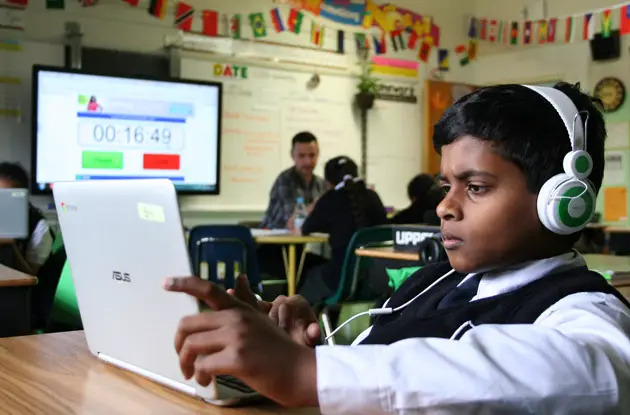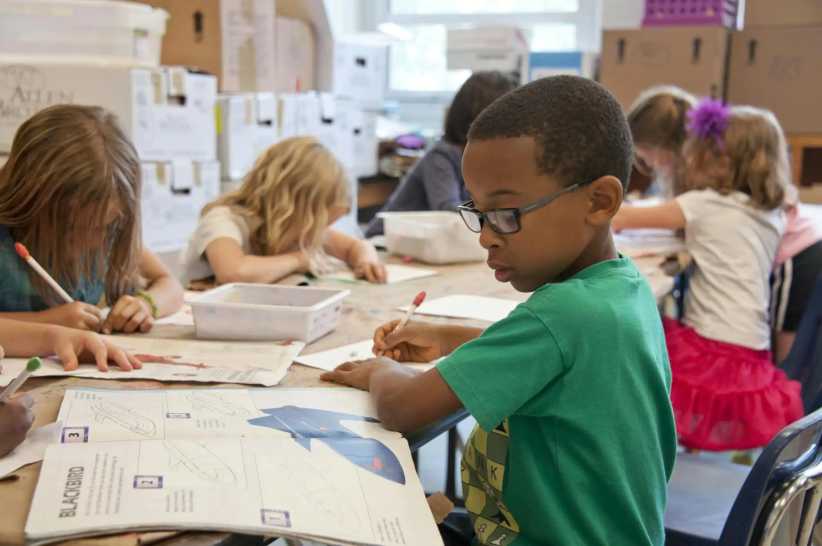
Is Unschooling Right for Your Child?
Did you know that unschooling can be an option?
Deciding what school your child will attend can be overwhelming, especially since the options in New York City are so vast. While the emphasis often focuses on the school with the best teachers, test scores, and programs in your area, some parents opt to skip school altogether and homeschool. Still, others decide they want to unschool their kids.
Unschooling is a hot topic as many parents and educators have been openly sharing their views on social media. TikTok has become a haven for both opposing sides of unschooling to assert their stance. While parents all over are weighing in, there are certain misconceptions about this controversial topic.
Homeschooling 101
If you haven’t heard of unschooling, you’re not alone. To understand unschooling, you first have to learn how homeschooling works. According to the Empire Center for Public Policy, the number of students who are homeschooled in New York State has increased by 178 percent over the past ten years. Though the pandemic was responsible for a large increase, numbers remain higher post-pandemic. While Washington DC leads the country in having the most homeschooled students, New York ranks second. There are approximately 54,000 homeschooling students in the state and 14,000 in New York City alone.
In New York State, any parent can homeschool their child. However, there are several legal standards that must be instituted prior to beginning. For example, you must submit a letter of intent stating that you will educate your child at home. Then you have to send a detailed Individualized Home Instruction Plan (IHIP) outlining your instruction course.
Over the school year, you have to submit regular assessments and quarterly reports of your child’s progress in your chosen course of instruction. As a parent, you can teach your child yourself, even without having any formal teaching education. You can also opt to hire a tutor to come into your home, join a homeschool group, or sign up your child for an online school where they learn from a teacher online. Some are choosing to unschool.
Psst… Check Out How to Start Homeschooling in New York
Unschooling is a Type of Homeschooling
Although unschooling is also done outside of a formal school, almost everything else about it differs from typical homeschooling. The term unschooling was coined by John Holt, an educator in the 50s, who believed that children didn’t have to be forced to learn as they would naturally learn independently if given the chance. The idea is that children direct their own learning by seeking out what they are interested in without the limitations of tests, assessments, and rank.
Parents who choose unschooling often do so to help their children avoid the pressures of conformity in a classroom. They want their kids to think independently and explore the world in their own unique ways.
Consequently, unschooling doesn’t adhere to a fixed curriculum. Unlike homeschoolers who often follow a school-based curriculum, books and study materials are not a must for unschoolers. Instead, the focus is on everyday learning and allowing children to learn based on their interests. For example, if a grade-schooler expresses curiosity about birds, flowers, or drawing, a parent might seize this moment to foster that interest. They could provide books, visit a botanical garden, attend an art show, or go to a museum, or they might simply share their own knowledge on the topic. The key is to encourage exploration and learning in a way that feels natural and engaging while following the child’s lead.
However, parents who want to unschool still need to find a way to fill out the necessary paperwork and outline what they will teach. Some unschooling websites provide tips and advise parents to simply consider what their child did during the summer and use that as a basis to formulate their upcoming course plans. There are also subreddits offering advice on how to produce the necessary paperwork without following a formal curriculum.
Possible Pitfalls of Unschooling
One problem that can arise in this free and open educational zone is that there is no set system for children to learn necessary skills like math or reading at age-appropriate levels. Parents may wonder what will happen if the child never shows an interest in adding, doing division, history, or reading. Consider how many things we had to learn in school that we initially had no interest in but grew to understand and appreciate, often lessons that propelled us to the next grade level.
Some critics argue that unschooling is merely parenting disguised as teaching. The line of thinking is that when we are with our kids, they often ask questions about the world around them, and we strive to provide answers. But is that sufficient for an education?
Many unschooling families view everyday activities, like going to the doctor or grocery shopping, as opportunities for learning. They use the outing to teach their children about colors during a drive, explain what doctors do, or show them how to budget for groceries—essential life skills learned through regular experiences typically reserved for after-school or weekend activities.
Another possible pitfall is that children who do not follow a set curriculum may not be up to speed with their grade level, and parents may not know it. A child also won’t be assessed for learning disabilities, including dyslexia, language processing disorder, and visual or auditory processing issues which make learning math difficult. When caught early, these learning disabilities can be promptly addressed with professional support and early intervention.
Psst… 21 New York Schools Named Blue Ribbon Schools by U.S. Department of Education
Some Educators Say Unschooling Works
That being said, there are many who believe that unschooling can produce positive outcomes. Gina Riley, Ph.D., an educational psychologist, Clinical Professor, and Program Leader of the Adolescent Special Education Program at Hunter College is a lifelong unschooling parent. In a podcast episode of “Honey, I’m Homeschooling The Kids,” Dr. Riley shares that her son’s first day of school was his first day of college.
Dr. Riley strongly believes in the power of intrinsic motivation and considers learning how to learn one of the most valuable skills a person can develop in life. She admits there are not a lot of studies on how unschoolers learn high-level subjects like math but says that math is a large part of life such as budgeting and shopping. When it comes to higher-level math she says there are unschoolers who show a marked interest and teach themselves algebra and calculus simply because they love numbers. At the same time, Dr. Riley points out that there is also a good portion of traditional school students who are math anxious and struggle, despite being in a formal classroom setting.
As a mom, Dr. Riley says that she wasn’t always forthcoming about her son’s unschooling journey, especially considering her background in education. However, she found that this educational approach allowed her son to thrive. He explored geology as a young child and later developed a passion for both sports and guitar. Now, as an adult, he is an editor and founder of a music education business.
Ultimately, educating a child is a deeply personal decision. Some children will thrive, while others may face challenges, regardless of the educational approach. The key is to do your research on various learning methods and discover what resonates best for both you and your child. Of course, as your child grows, you can always pivot and make changes to ensure they have the best possible learning experience each year.
























